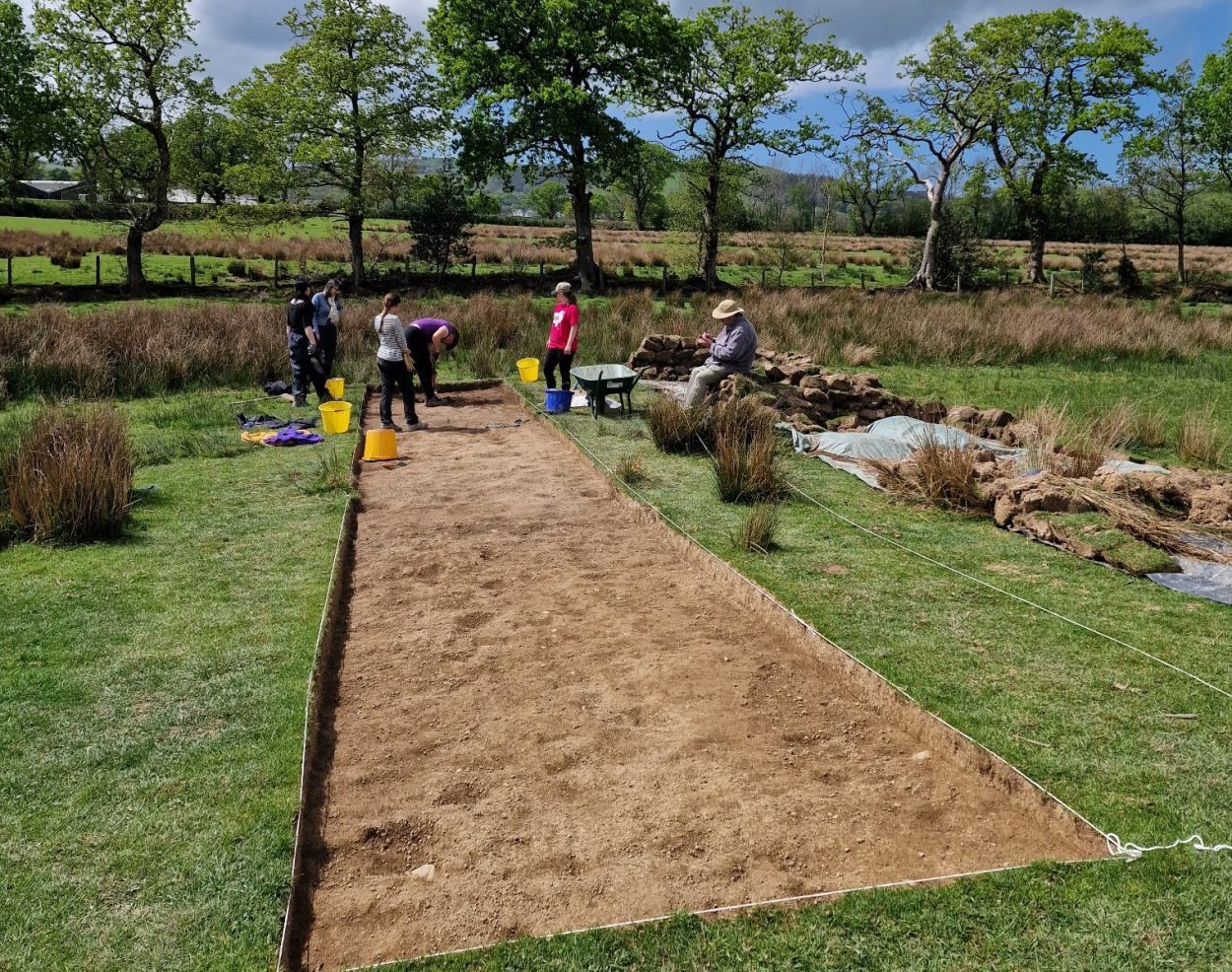Archaeologists from the University of Wales Trinity Saint David are searching for evidence of Ceredigion’s oldest inhabitants and to explore the earliest connection between Ireland and Wales.
Excavations are part of Portalis, a new cross-border, transdisciplinary pilot project funded by the Ireland Wales programme. Portalis maps the story of the first human journey between Ireland and Wales dating back to the Mesolithic period.
Previously research at Talsarn in the Aeron Valley of Wales discovered a low mound on the valley floor, interpreted as a possible dry refuge in an otherwise marshy landscape for people around 6000 years ago.
The latest excavations have found small flakes of flint, the debris resulting from tool manufacturing. Flint isn’t a locally occurring raw material in the Ceredigion region and would have been sourced from Southern England or possibly Northern Ireland. The finds were found on the remains of two mounds and suggests that the valley inhabitants were hunting, fishing or wildfowling.
Portalis Post-doctoral Researcher, Dr Samantha Brummage said: “The Portalis project is allowing us to link up new finds from the excavation with what we already know from Cardigan Bay – and to explore connections with Ireland and wider communities.”
This will be achieved by consolidating existing evidence with new data to develop a powerful new cross-border narrative. The €1.95 million project aims to raise awareness and support community and business sustainable engagement, resulting in the establishment of two new experiential tourism and cultural networks in Ireland and Wales.
University of Wales Trinity Saint David
Header Image Credit : University of Wales Trinity Saint David







